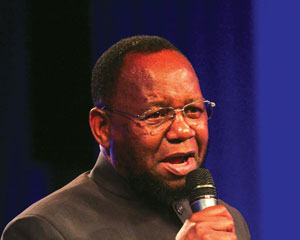
The third term of the school calendar begins this week amid growing uncertainty fuelled by the government’s shadowy audit of the civil service and the deteriorating economy punctuated by massive job losses.
The cash-strapped government is under pressure to reduce its wage bill, which it says accounts for over 80% of its expenditure.
In July, Finance minister Patrick Chinamasa announced that Cabinet had approved measures to reduce the wage bill by at least 40%, but the government has not been clear on how it intends to achieve this.
However, the Civil Service Commission has been carrying out a head count of civil servants as a way of weeding out ghost workers.
The audit began in April, and according to reports, 3 000 teachers were struck off the payroll after they were not found at their work stations.
Teachers unions have protested against the measures, saying most of the affected educators were on leave at the time the audit was carried out and have been unnecessarily inconvenienced by the non-payment of salaries.
As if that was not enough, Primary and Secondary Education minister Lazarus Dokora announced last week that the government would lay off at least 20 000 untrained teachers that have held fort at a time Zimbabwe was losing skilled personnel to other countries due to poor salaries.
There is no doubt that the ongoing audit and the uncertainty facing untrained teachers will destabilise the education sector. Unions have already threatened to call for strikes when schools open in solidarity with unpaid teachers.
- Chamisa under fire over US$120K donation
- Mavhunga puts DeMbare into Chibuku quarterfinals
- Pension funds bet on Cabora Bassa oilfields
- Councils defy govt fire tender directive
Keep Reading
That the education sector is backsliding to the chaos of the pre-inclusive government era where teachers embarked on indefinite job boycotts, is no longer debatable.
The effects of that sad chapter were telling in the performance of children in public examinations that followed.
It took the tenacity of former Education minister David Coltart to restore normalcy in the sector and the emerging challenges need someone of his stature to forestall a crisis similar to the 2008 disaster.
Dokora is the man who carries the nation’s hopes on that front, but the minister’s performance since his elevation post -Coltart era has not been inspiring.
It would not be far-fetched to say the minister is responsible for most of the problems facing the education sector and his silence on the disruptive nature of the ongoing audit shows that he is simply out of depth.
Besides the contentious audits, the majority of parents may not be able to pay school fees on time this term because they lost their jobs, or employers cannot pay them on time.
According to reports last week, a survey by the Poverty Reduction Forum showed that 75% of households that were sampled across the country were unable to pay school fees.
The situation is bound to get worse with the accelerated job losses and company closures that are symptomatic of the collapsing economy.
Zimbabweans are sinking deeper and deeper into poverty and this is eroding most of the gains made since independence.
President Robert Mugabe’s government invested heavily on education after independence and one of the reasons that brings hope of a quick economic turnaround is that the country has an abundant human resource base.
The government has an obligation to ensure that the competitive advantage is not lost by stemming the unfolding crisis in the education sector.
An audit of the civil service is necessary because it has been proven that the government’s payroll is littered with ghost workers, but this cannot be at the expense of efficient service delivery.
The audit carried out by Ernst & Young (India) during the inclusive government era revealed that most of these ghost workers were in the Youth and Indigenisation ministry and this is where the government should be focusing on.
Most importantly, more effort should be put into making sure that the economy begins to work again, instead of destabilising the education sector.











